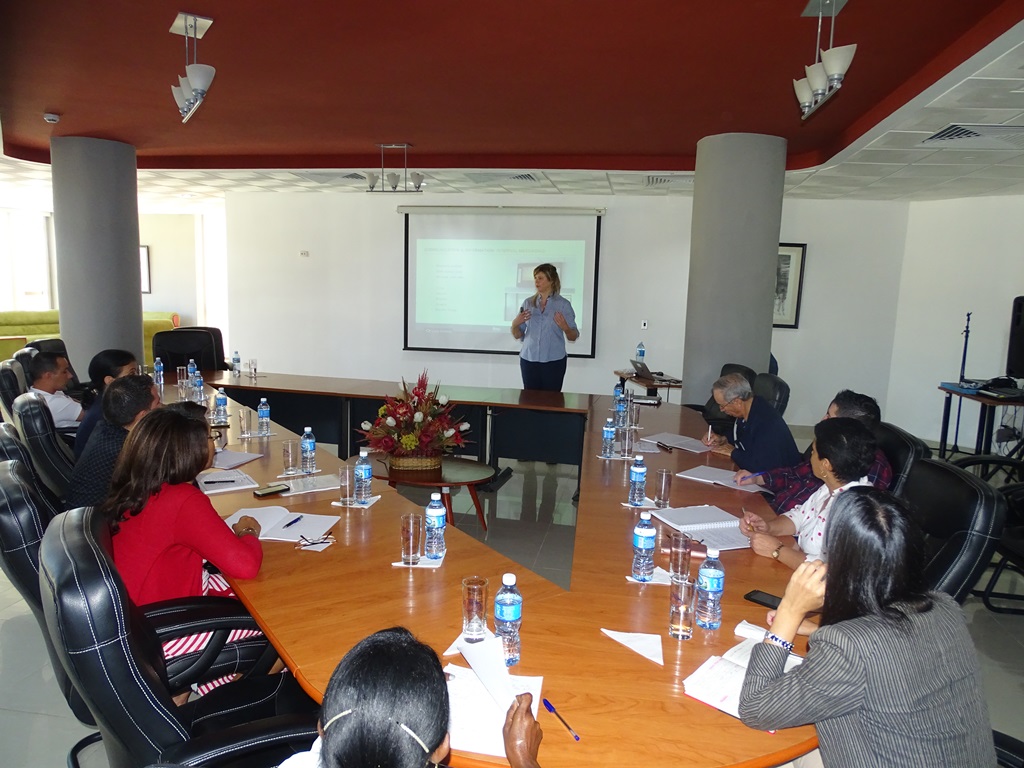Exchanging experiences, based on the appropriation of good practices for a better performance, we shared during three working sessions with executives of Human Resources and Press, of PSA International, in the region of the Americas.
From the previous application of the HBDI (Herrmann Brain Dominance Instrument) -a system designed to measure and describe the preferences of thought, developed by William “Ned” Herrmann-, we were able to know details of this tool and had the opportunity to find an answer to concerns about the subject.
The participants highlighted the value of this mechanism in the creation of work teams, taking into account the objectives pursued. “Knowing ourselves, and the rest of the people with whom we interact, makes the way to communicate is more effective, and therefore, superior results,” said Denys Sacha, one of the representatives of PSA.
How do the messages reach people, according to the preferences of thought? He questioned and emphasized “the importance of having in a business communication characteristics of each quadrant of the brain (rational, pragmatic, emotional, and experimental) , so that it causes the desired effect on the target audience. “
With the presence of leaders from terminal areas, during the development of another meeting, Tao of Coaching methods were offered, which show possible ways or paths for the necessary preparation exercise, at different levels.
An introduction to PSA, through a corporate video and the approach to the main characteristics of the company, opened the way for the second session, also nuanced by the approach to a series of initiatives and activities that develop with the workers’ contest. They also learned details of the actions undertaken in TC Mariel, pursuing similar purposes.
“PSA continues to expand around the world and has 40 business units in five regions. We focus on people, and the exchange of knowledge and experiences, to achieve global comprehensiveness, “said Caroline Germaine Alfred, another representative of this important facilitator of international trade.
The tools for organizational development, the evolution of the competencies required in the different positions, the good practices in the automation of the processes, the talent framework for the development of Human Resources, the opinion polls of the personnel, and the notes for improve the work climate, they constituted other of the subjects tackled.
They also shared programs that they undertake in order to positively converge several generations, promote the exchange of personnel between regions, execute individual development and succession plans, achieve interrelation with universities, among other proposals.
The last day focused on communication and the involvement of staff in it. In this sense, Caroline referred to the platforms used to transmit information of various kinds, the campaigns developed, the messages of thanks to the staff, the communication events, and the actions that promote the bond with families.
He also offered some suggestions to prevent stress and the so-called occupational diseases, and talked about the information packages designed for new staff, the breakfast sessions with topics that motivate the collective debate, the exchanges of workers between departments, the work carried out to promote the generation of ideas, and the empowerment of voluntary groups.
Mariana Jorge, another of the executives, made reference to how some of these experiences are also carried out in Argentina and Panama. After the exchanges, the invitation to do some of these practices is still open – always adapting them to each context – and to perfect existing ones.

